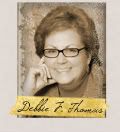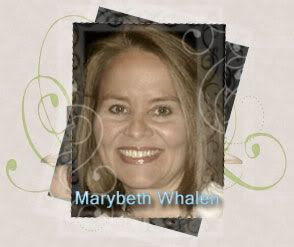
This year marked the 83rd Academy Awards and I thought we might have a little bit of fun. The title of this post is a nod to The King's Speech which won Best Picture. Before the awards ceremony, I read a reviewer's post that favored Speech over The Social Network because in contrast, Speech had one central, very likable character with whom people could identify. We love well-defined, sympathetic characters who rise to inspire us. We need them.
4. Is there a movie that inspired you to read the book?
Okay, I'll go first.
#1 I think To Kill a Mockingbird would be my choice for most successful movie version. The casting was excellent. Whenever I pick up the book, I hear Gregory Peck speaking through the character of Atticus Finch and the essence with the story was treated with great care. I understand that Snow Falling on Cedars was a cinematic flop. I really enjoyed the book, but I won't spend money on the video unless it's shows up on Redbox for $1.
#2 I would love to see the movie version of Peace Like a River. I think Cameron Bright (& up & coming younger actor) would play Reuben Land and Jeff Bridges would play his father, Jeremiah. I see that a movie version has been 'in-development' since 2005 and it currently has a release date of 2011. Billy Bob Thornton is the only cast member listed right now. I still think Jeff would be a better Jeremiah (no offense, Billy Bob).
 What a great Roundtable topic, Debbie. As I read Question #1, the first thing that came to mind as the most successful was To Kill a Mockingbird, then I saw it was your answer too. I don't mean to duplicate, but it tops my list, so I'll let it stand. The least successful, hmm ... I'll have to give that some thought.
What a great Roundtable topic, Debbie. As I read Question #1, the first thing that came to mind as the most successful was To Kill a Mockingbird, then I saw it was your answer too. I don't mean to duplicate, but it tops my list, so I'll let it stand. The least successful, hmm ... I'll have to give that some thought.
That said, we know that books don't always translate well to the silver screen, but some movies are able to capture story nuances where others aren't so successful. I've laid out several options for this Roundtable today. We get to answer as many of the following as we'd like, and we hope you will jump into the fray with your answers:
1. What book-turned-movie was the most successful in your opinion and why? Least successful?
2. What book would you love to see made into a movie and who would you cast in the major roles?
3. Which book-turned-movie do you think was an improvement over the book?
1. What book-turned-movie was the most successful in your opinion and why? Least successful?
2. What book would you love to see made into a movie and who would you cast in the major roles?
3. Which book-turned-movie do you think was an improvement over the book?
4. Is there a movie that inspired you to read the book?
Okay, I'll go first.
#1 I think To Kill a Mockingbird would be my choice for most successful movie version. The casting was excellent. Whenever I pick up the book, I hear Gregory Peck speaking through the character of Atticus Finch and the essence with the story was treated with great care. I understand that Snow Falling on Cedars was a cinematic flop. I really enjoyed the book, but I won't spend money on the video unless it's shows up on Redbox for $1.
#2 I would love to see the movie version of Peace Like a River. I think Cameron Bright (& up & coming younger actor) would play Reuben Land and Jeff Bridges would play his father, Jeremiah. I see that a movie version has been 'in-development' since 2005 and it currently has a release date of 2011. Billy Bob Thornton is the only cast member listed right now. I still think Jeff would be a better Jeremiah (no offense, Billy Bob).
#3 I thought The Painted Veil was better as a screenplay. I think they stayed really close to the story but improved the ending. It was also a movie that inspired me to read the book.
 Thanks for asking question #3, Debbie. I read The Horse Whisperer after seeing the movie, and I was sooooo disappointed in the book. First and foremost, I considered the female protagonist of the book weak and sniveling. She didn't feel fulfilled. She was married to a nice guy who loved her and was a terrific father, and yet the cowboy--strong and silent, of course--totally got her. Ack!!! And the ending in the book was very, very contrived. Redford not only added spectacular vistas (including his face), but while the two main characters were definitely attracted (dance scene!), the wife left the ranch with the intent of saving her marriage, and the cowboy didn't have to die to make that happen, like the good father and husband was the woman's consolation prize. In short, Redford added nobility to the story.
Thanks for asking question #3, Debbie. I read The Horse Whisperer after seeing the movie, and I was sooooo disappointed in the book. First and foremost, I considered the female protagonist of the book weak and sniveling. She didn't feel fulfilled. She was married to a nice guy who loved her and was a terrific father, and yet the cowboy--strong and silent, of course--totally got her. Ack!!! And the ending in the book was very, very contrived. Redford not only added spectacular vistas (including his face), but while the two main characters were definitely attracted (dance scene!), the wife left the ranch with the intent of saving her marriage, and the cowboy didn't have to die to make that happen, like the good father and husband was the woman's consolation prize. In short, Redford added nobility to the story.
 Thanks for asking question #3, Debbie. I read The Horse Whisperer after seeing the movie, and I was sooooo disappointed in the book. First and foremost, I considered the female protagonist of the book weak and sniveling. She didn't feel fulfilled. She was married to a nice guy who loved her and was a terrific father, and yet the cowboy--strong and silent, of course--totally got her. Ack!!! And the ending in the book was very, very contrived. Redford not only added spectacular vistas (including his face), but while the two main characters were definitely attracted (dance scene!), the wife left the ranch with the intent of saving her marriage, and the cowboy didn't have to die to make that happen, like the good father and husband was the woman's consolation prize. In short, Redford added nobility to the story.
Thanks for asking question #3, Debbie. I read The Horse Whisperer after seeing the movie, and I was sooooo disappointed in the book. First and foremost, I considered the female protagonist of the book weak and sniveling. She didn't feel fulfilled. She was married to a nice guy who loved her and was a terrific father, and yet the cowboy--strong and silent, of course--totally got her. Ack!!! And the ending in the book was very, very contrived. Redford not only added spectacular vistas (including his face), but while the two main characters were definitely attracted (dance scene!), the wife left the ranch with the intent of saving her marriage, and the cowboy didn't have to die to make that happen, like the good father and husband was the woman's consolation prize. In short, Redford added nobility to the story.As for #2, I can't wait for Hunger Games to hit the big screen.
 #1:
#1:
After reading "The Divine Secrets of the Ya-Ya Sisterhood," by Rebecca Wells, I watched the film and loved every minute. To understand the finer points of character motivation, you'd want to read the book, but I thought the film was wonderfully cast. The characters were so much like old friends, I felt like waving.
#2:
I'd love to see "The Help," by Kathryn Stockett, on the big screen. Also, "The Guernsey Literary and Potato Peel Pie Society" by Mary Ann Shaffer and Annie Barrows
#3 & #4:
My all-time favorite film is "Chocolat." I read the book after (by Joanne Harris), and was stunned to find that the film was such an improvement. The book is much darker, with little of the humor and wonder found in the the film, and (it's been a few years since I read it, so this is from memory) less compassion.
 #1:
#1:After reading "The Divine Secrets of the Ya-Ya Sisterhood," by Rebecca Wells, I watched the film and loved every minute. To understand the finer points of character motivation, you'd want to read the book, but I thought the film was wonderfully cast. The characters were so much like old friends, I felt like waving.
#2:
I'd love to see "The Help," by Kathryn Stockett, on the big screen. Also, "The Guernsey Literary and Potato Peel Pie Society" by Mary Ann Shaffer and Annie Barrows
#3 & #4:
My all-time favorite film is "Chocolat." I read the book after (by Joanne Harris), and was stunned to find that the film was such an improvement. The book is much darker, with little of the humor and wonder found in the the film, and (it's been a few years since I read it, so this is from memory) less compassion.
 What a great Roundtable topic, Debbie. As I read Question #1, the first thing that came to mind as the most successful was To Kill a Mockingbird, then I saw it was your answer too. I don't mean to duplicate, but it tops my list, so I'll let it stand. The least successful, hmm ... I'll have to give that some thought.
What a great Roundtable topic, Debbie. As I read Question #1, the first thing that came to mind as the most successful was To Kill a Mockingbird, then I saw it was your answer too. I don't mean to duplicate, but it tops my list, so I'll let it stand. The least successful, hmm ... I'll have to give that some thought.#2. Again, I don't mean to duplicate, but like Patti, I'm so anxious for Hunger Games to come out. I'm a huge fan of the series. Hailey Steinfeld (True Grit) is being considered for the role of Katniss Everdeen. That would be terrific. I'd also love to see What We Keep made into a motion picture. I'd want Rene Zellwegger to be Ginny, Diane Kruger to be Sharla, and Helen Mirren to be their mother.
#3. I enjoyed reading The Notebook, but I loved the movie. I thought all the principle actors were terrific, especially Ryan Gosling.
#4. Circle of Friends inspired me to read the book, which led me to become quite a fan of Maeve Binchy.

I tried to read the Lord of the Rings and felt like I was pulling my feet through molasses. Then I saw the first film and a fire broke out in the theater and it was evacuated ten minutes before the ending of the film. But it didn't matter, I hated it. Not until I was hosting an eleven-year-old when his parents were in divorce court for three days did I learn to appreciate Tolkein. To distract the young boy, I had him talk me through all three films and now they are among my favorites.












